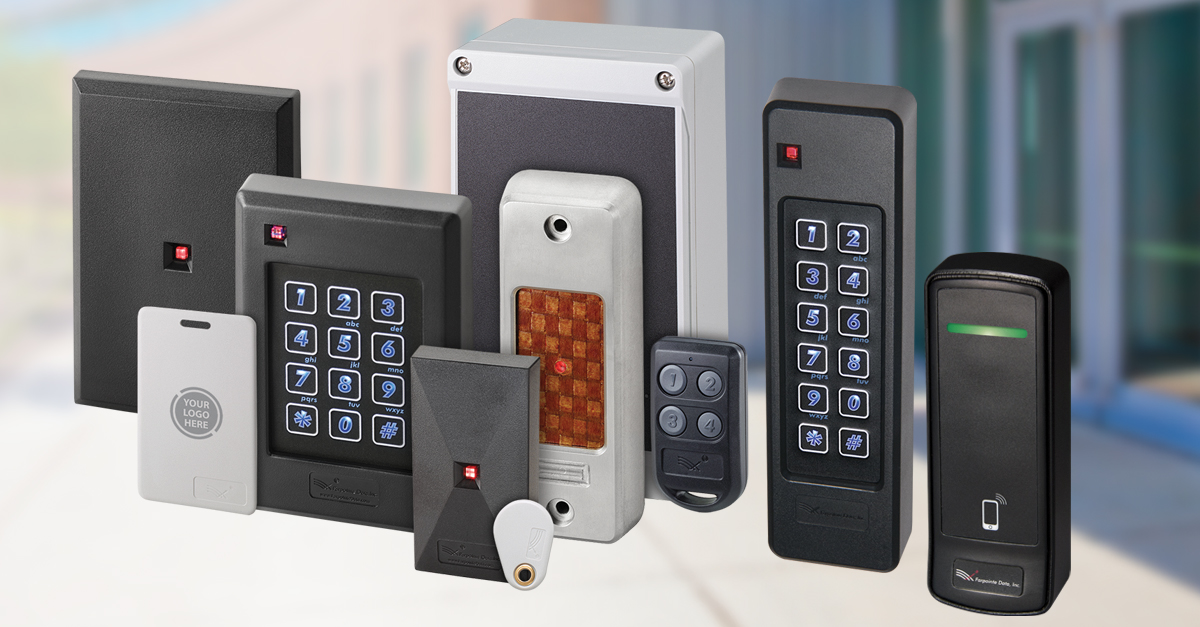
Why Farpointe Data Prefers to Go to Market via the True Channel
By Rudy Regidor, Customer Service Manager
There are many ways that a company such as Farpointe Data could go to market. They could be online, use distributors, go direct to end users, treat all members of the channel the same or follow the true channel. Farpointe Data follows the true channel. Here is a brief explanation.
Farpointe Data Sells Via the True Channel
Farpointe Data sells directly to electronic access control system manufacturers, commonly referred to as OEMs (Original Equipment Manufacturers) and VARs (Value Added Resellers). Traditionally, an OEM has been the company that builds a product to be modified, rebranded and resold. Today however, many OEMs often purchase technology products and services and either rebrand them as their own and resell them exactly as they were built or add additional features or bundle with an additional product, then resell the bundled system offering.
A VAR is an organization that takes some component of a security system, such as a third-party door controller, and creates solutions that go beyond the fundamentals of door operation. The VAR also might purchase a piece of computer hardware and build a specific software application to be sold with it. Additionally, the VAR might add value by providing technical support, training, or installation to go along with the product to be sold.
Bottom line, both types of organizations—OEMs and VARs—are system manufacturers. These manufacturers, in turn, typically sell to distributors, integrators and dealers.
Many Farpointe Data OEMs and VARs sell directly to distributors. A distributor will often buy these companies’ system products, which include Farpointe Data readers and credentials, warehouse them, then resell them to integrators and dealers without changing any aspect of the products. Some distributors may provide additional value-add services, such as local technical support, or contribute to an OEM or VAR’s promotional efforts.
What's the difference between an integrator and a dealer? Aren’t both security contractors? Typically, a systems integrator is a company that buys individual hardware and software components from many different vendors and integrates them into one customized solution that meets the business needs of its customers. In the access control market, an integrator takes certain parts of different manufacturers’ security systems and combines them with other companies’ security components to form a new whole.
Contrarily, the dealer—in effect similar to a smaller distributor—resells products from a single supplier, with no improvements made. Integrators and dealers—or other installers—sell directly to the end-user, and quite often provide these end-users with specification, installation and system training, as well as maintenance services.
Note from the above that the end-user never gets product directly from Farpointe Data. The route product follows to the end-user is left to the true channel.
Here's a Trick Question
How do end-users get replacement access cards? Can't they go directly to Farpointe Data's website, as they do with some other manufacturers? With Farpointe Data, the answer is a resounding, "No!" End-users order their replacement cards through their installer, who gets them in the same way that they ordered the original components for the end-user's access control solution. Simple!
Such a channel distribution policy respects that value is delivered at each step within the channel. This means that no matter where you are in the channel, Farpointe Data will not be competing with you. Our customers are not your customers. Farpointe will not be in your end-user market with pricing or policies that conflict or compete with your own. If you've ever been closing on a big deal and a manufacturer's rep showed up to undercut your deal, you know exactly what I mean.
Such a move is a blow to you.. Ask yourself,”If this happened to you, how often would you look forward to specifying that manufacturer's products again?”
The True Channel Eliminates All Sorts of Issues
Let's explore one example of how the true channel simplifies business life for everyone by looking at the sale of mobile access credential and reader solutions. First of all, at no part of the channel, including the end-user, are there any physical cards or tags to ship or store. That immediately removes any channel logistics problems. Or does it? Without question, it seems as though mobile credentials become, by far, the easiest way to distribute credentials.
Not really true! Even though there is no "hard" product, there is still a software authorization code to use for each particular smart phone. Have you stood in the customers' shoes when looking at what happens, just to get the smart phone working in the access control app? If not, let us tell you.
Users can be forced to register themselves and their integrators (and the integrator's seller as well) for each and every application. Door access–register. Parking access–register again. Logical access–register again, with each registration requiring the disclosure of sensitive personal information to multiple parties.
However, with a true distribution scheme and Farpointe Data's second-generation mobile access technology, the user registers their handset only once and requires no portal accounts, activation features or hidden fees. Users don't need to fill out any forms.
By removing these and additional intrusive information disclosures, Farpointe Data eliminates the privacy concerns that have been slowing down adoption of cloud-based mobile access control. All that is needed to activate the credential is simply the phone number of the smartphone. When mobile credentials are sold from OEM to integrator to end user, it avoids the pitfalls of setting up multiple accounts and eliminates the risk of sensitive personal information being available for hacking.
There are no levels to wade through. Mobile access credentials can be employed with either the final customer's access control or independent access control software, with the full support of the OEMs, VARs, distributors, system integrators and dealers. Multiple credentials will fit easily into a single smart phone wallet app. And, each element in the go-to-market channel automatically get their portions of the proceeds.
What's the Point?
Remember the 4 P's of marketing a good or service - product, price, promotion and place. The latter not only has to do with how you get your product, but it also affects how your end-users can employ your product. Not only do you want to avoid conflicts in your sales operations, but you want to make sure that your customers avoid conflicts in using your solutions.
 Rudy Regidor
Rudy Regidor
Customer Service Manager
